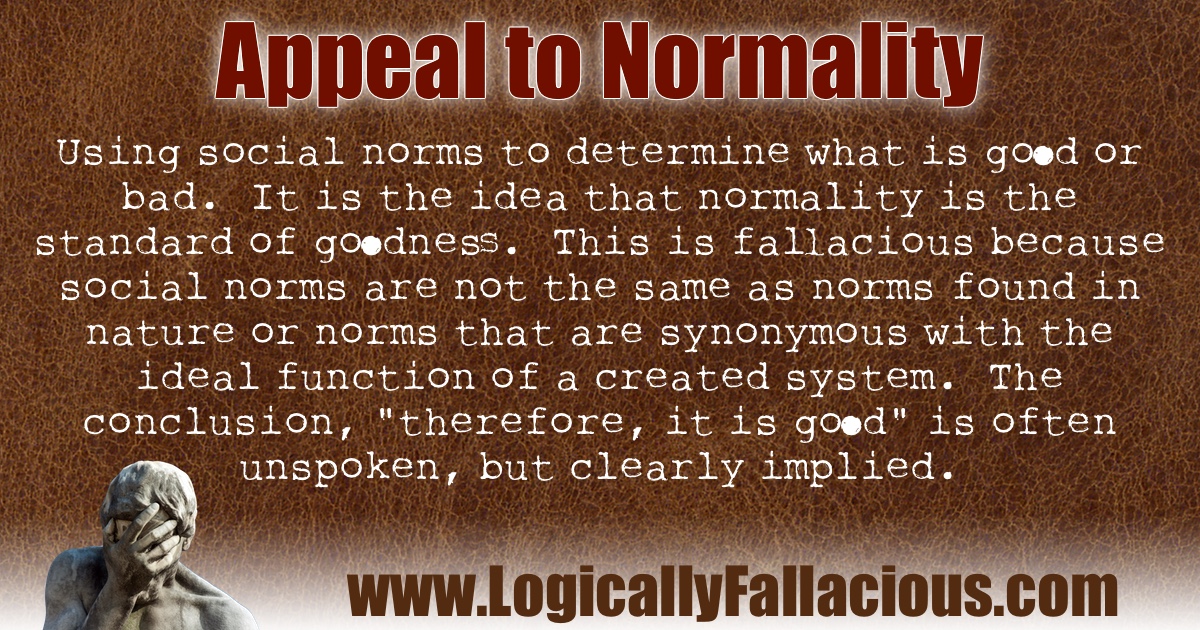Description: Using social norms to determine what is good or bad. It is the idea that normality is the standard of goodness. This is fallacious because social norms are not the same as norms found in nature or norms that are synonymous with the ideal function of a created system. The conclusion, "therefore, it is good" is often unspoken, but clearly implied.
Logical Forms:
X is considered normal behavior.
Therefore, X is good behavior.
X is not considered normal behavior.
Therefore, X is bad behavior.
X is considered normal behavior.
Therefore, we should strive for X (normality).
Example #1:
I am only slightly obese. That is perfectly normal here in America.
Explanation: The person is correct in that being slightly obese is considered normal in America. In no way is this a good thing by virtually any measure of goodness. Athletes and those who make their health and fitness a priority are far from normal, but viewing that level of health and fitness as bad is clearly fallacious.
Example #2:
Why doesn't Tim get a real job like normal people instead of trying to launch that Internet business from home?
Explanation: Tim is not like normal people when it comes to work—he is part of the minority who dream big and follow their dreams. Tim might make it big, or he might not. Without the Tim's of the world, the normal people would have no place to get a "real job."
Exception: There are circumstances where eccentric or unusual behavior is clearly problematic. These are situations where even slight deviations from the norm have been demonstrated to have negative results, and the implied “badness” of the behavior needs no justification.
My dad got arrested again sunbathing naked in a public park while tripping on acid... during a snowstorm. That’s not normal.
Another exception is when "normal" is used in such a way to balance negative social behavior. For example, a mother may yell at her misbehaving child to "act normal" at a school open house. There is no implication here that being "normal" is the ideal behavior, just an immediate and realistic improvement from the current behavior.
Tip: For the most part, being "normal" or "average" is nothing to be proud of. Be better than average.

This is an original logical fallacy named by the author.